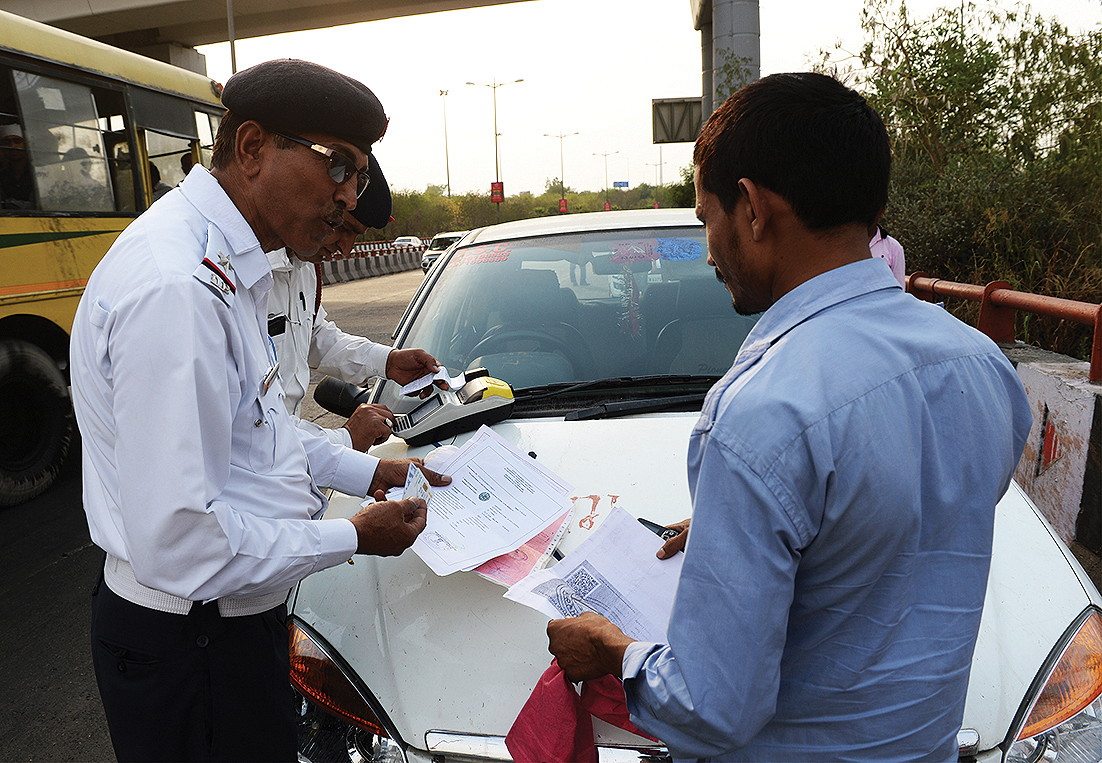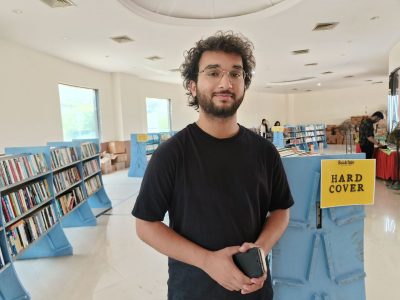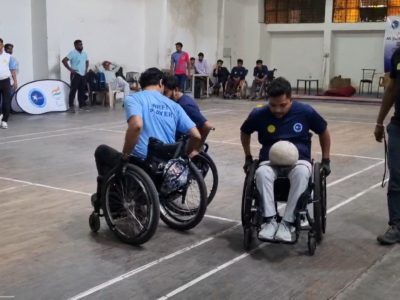The streets of Delhi are fraught with traffic violations and unabashed rule breaking. In 2018, 64 lakh challans were issued by the Delhi Police for people breaking traffic rules — which amounts to 17,357 cases per day.
An earlier report by Patriot revealed that for the lack of proper infrastructure and understaffed traffic police (one policeman per 3,202 citizens) people find it easy to break traffic rules. However, with the advent of modern technologies and more stringent traffic rules, more traffic violators are being pulled up and sent to traffic courts. Patriot visits three district courts in Delhi to give readers a glimpse of what happens inside the traffic courtrooms once a person gets challaned.
PATIALA HOUSE
SREYA DEB
Everyone in courtroom no. 11 at Patiala House family courts, looks on apprehensively as Premlata from Faridabad steps up to the dais with an entourage — half her family. All of 23 years, she walks up to the judge alongside her advocate, with a baby on her hip, her brother-in-law and mother-in-law in tow.
Metropolitan magistrate Ritu Singh was being both tough and fair on the traffic violators. She seemed to stick closely to the word of the law and was not being excessively harsh on any of the violators who appeared before her.
The court proceedings started on schedule at 12 pm. The courtroom is filled to bursting capacity with all the advocates and the people they were representing. The constant buzz of conversation and violators being briefed by their advocates makes it difficult to hear the judge. However, the proceedings ware fairly smooth.
Premlata’s brother-in-law had been caught riding a bike without any of the required documentation. The offending bike was given to her husband (now 34) as a gift at the time of their marriage, and was signed to her name. She also does not provide any clarity on where her husband works and what he does “Mujhe itna idea nahi hai,” she says with a shy smile, backing into the wall (I don’t have much of an idea). The bike is nine years old and her husband still has no driving licence: “Woh baar baar test mein fail ho jaate hai,” she explains (He keeps failing the test again and again). Neither brothers is a licensed driver.
As a mother of three, she admits how difficult it is to dish out such large amounts of money at one go. It was quite a poignant sight to see the family diligently counting Rs100 notes out of a cloth bag for the Rs 4,500 fine that they had to pay for the transgression.
Towards the fag end of the proceedings, as the crowd inside the courtroom is beginning to thin out, Kuldeep Mishra can be spied waiting obediently outside the door. He found the courtroom after much ado, having to pay someone Rs 100 just to be directed to the right courtroom – all along, he was accosted by advocates who insisted on giving him their business cards instead of helping out. Mishra, a repeat offender had been issued a challan for crossing the yellow line divider at Akbar Road while he was driving his pregnant wife to the hospital in their Swift Dzire.
Despite trying to explain to the traffic police on the spot as well as the judge deciding his case, that he may have been driving rashly as he was taking his wife to a doctor’s appointment at Safdarjung Hospital, he was ultimately charged a fine of Rs 1,300 for crossing the yellow line and for not producing insurance and pollution documents on the spot.
His previous bout with traffic offences was at the Tis Hazari court a few months ago, where he was charged for speeding. The 30-year-old well-built man, who owns a garments business, was quite perplexed with the behaviour of the advocates at the courts, who wanted payment upfront even before representing him. Mishra decided to argue his case himself and after a point, the over-eager advocates were clearly getting on his nerves. “Kuchh 15-20 log toh aaye honge mere paas. Keh rahe the ‘mera card rakh lijiye, zaroorat pade toh call kariyega.”(At least 15-20 advocates came up to me, saying ‘Keep my card, call me if you ever need an advocate’.) The rest of his rant against them is not nearly as polite.
TIS HAZARI
SHUBHAM BHATIA
In the bustling Court No. 28 in Tis Hazari, Metropolitan Magistrate Judge Kapil Kumar sits with a straight face as the traffic inspector who stands next to him shouts Raghu Prasad’s name. (Name changed).
Dressed in a brown jacket and black trousers, Raghu, 25, walks into the courtroom, it is pretty evident that he is diffident about the hearing. He reaches the judge’s raised bench and stands beside his advocate.
Suddenly, there is a visible change on the judge’s facial expressions. In a raised voice, he reprimands Prasad for producing a licence which was not his and orders him to wait outside the courtroom.
His advocate Ravi Kumar shed some more light on what exactly transpired. On January 1, Prasad drove the bike up till Red Fort in a drunken state and was caught by the police. The alcometer read 100 whereas 30 is permissible under the law.
He didn’t have a registration certificate (RC) or the licence. His bike was seized and he was challaned for different violations of the Motor Vehicle Act, 1988.
“The bike he was driving belonged to his brother-in-law and it was a third-hand purchase from a dealer. They hadn’t transferred the documents to their name which led to the confusion in the courtroom,” said advocate Ravi Kumar.
After a while, Prasad again shows up in the courtroom, Kumar clears the confusion saying, “The licence belongs to the brother-in-law.” He also requests the judge to let Prasad pay the fine. The judge after giving it a brief period of thought, orders Prasad to pay a fine of Rs 7,500.
But there’s a twist to the situation — not only does Prasad have to pay the hefty fine, but he is also given the punishment of standing with his face to the wall till 4 pm. And he did so without taking any breaks.
While the narrow hallway of Court No. 28 was overcrowded, the scene in front of Court No. 366 was a tad different. The people were waiting patiently. One amongst them was Sanket Kumar who seemed quite nonchalant, and has come for a RC violation.
A resident of GT Karnal Road, Kumar works in the administration department of Vidya Bhavan School at Civil Lines. “This is the third time I’m coming to this court. The first I came here was on 28th of December,” says Kumar.
Kumar says that the first time he came to the court he was given a date of January 15, but was told that the judge is on leave. He couldn’t pay the fine.
“I think I will have to pay Rs 2,000-2,500. But I don’t know the mood of the judge as yet,” says Kumar.
He recalls the first time he came to the court after violating a helmet rule in 2013. On both times, he didn’t hire an advocate and went through the proceeding by himself. “I know a lot of lawyers who come to this court but I didn’t ask for their help. I can but I chose not to. I didn’t feel theneed,” concludes Kumar.
KARKARDOOMA
SHAUNAK GHOSH
The proceedings of the traffic court in Karkardooma for challans begins at 12.30 pm, and continues until 3 pm. In Court No. 56 on Monday, January 28, a total of 40 cases are heard.
Out of these 41 cases, 20 were for ‘No Parking’ and ‘No Entry’ offences, 10 for speeding, seven for absence of document, two for talking on the mobile phone while driving and one drunk driving case. Interestingly, 25 of these 41 cases were regarding offences by e-rickshaws. They have lawyers to represent them, but also present their own defence.

Sudhir Raj appears before the court as he was challaned for talking on the mobile phone while driving his Maruti Wagon R. However, when asked by the judge whether he confesses to his offence, he refuses, saying that he had been framed wrongly by the traffic police, who wanted to extract money from him illegally. “I was just driving the car in my lane and was just about to enter the main road, when an urgent call from my mother came, and I parked my car on the side of the road to take the call”, he says.
“However, the policeman caught me for an offence which I didn’t commit, and was consistently asking for a ‘cut’. I refused to bribe him and then he challaned me asking me to come to court”. After listening to what he had to say, the judge fines him for Rs 500. Although he is still reluctant to pay the fine.
Ghanshyam, an e-rickshaw driver, was challaned for two separate charges, one for entering a ‘No Entry’ zone, and another for speeding. Though he confesses to entering into a no entry zone, he and his lawyer refuse to plead guilty to speeding. “The police was asking for a separate speed-o-meter, in addition to the one already present in the vehicle, as according to them, this speed-o-meter was invalid. That is why they challaned
Ghanshyam for speeding”, says the lawyer. “It was completely baseless and an abuse of power”, he adds.
In another case, Rakesh, a driver with a cab company was involved in an altercation with a female passenger and dropped her mid-journey somewhere on the Ghaziabad border, around 10.30 pm. The judge severely reprimands him for doing so with a woman, and fines him a hefty Rs 3,200. In addition to this, his license is seized by the court, and the cab company he works at is ordered to terminate his employment.





